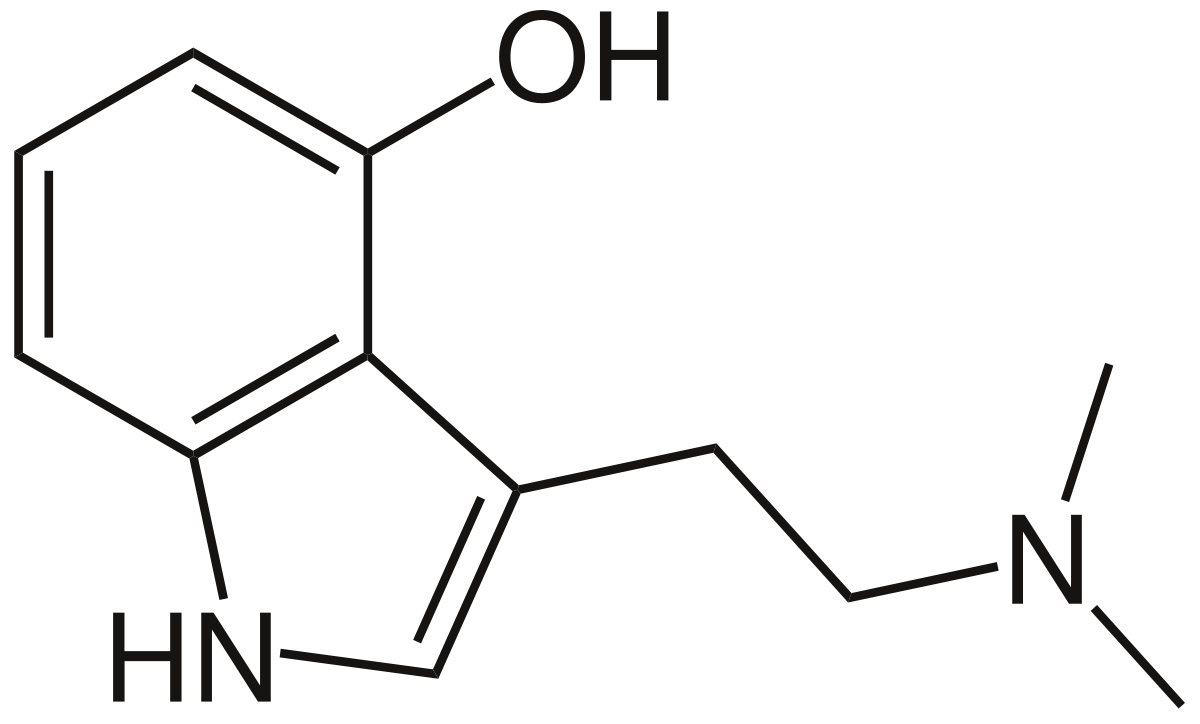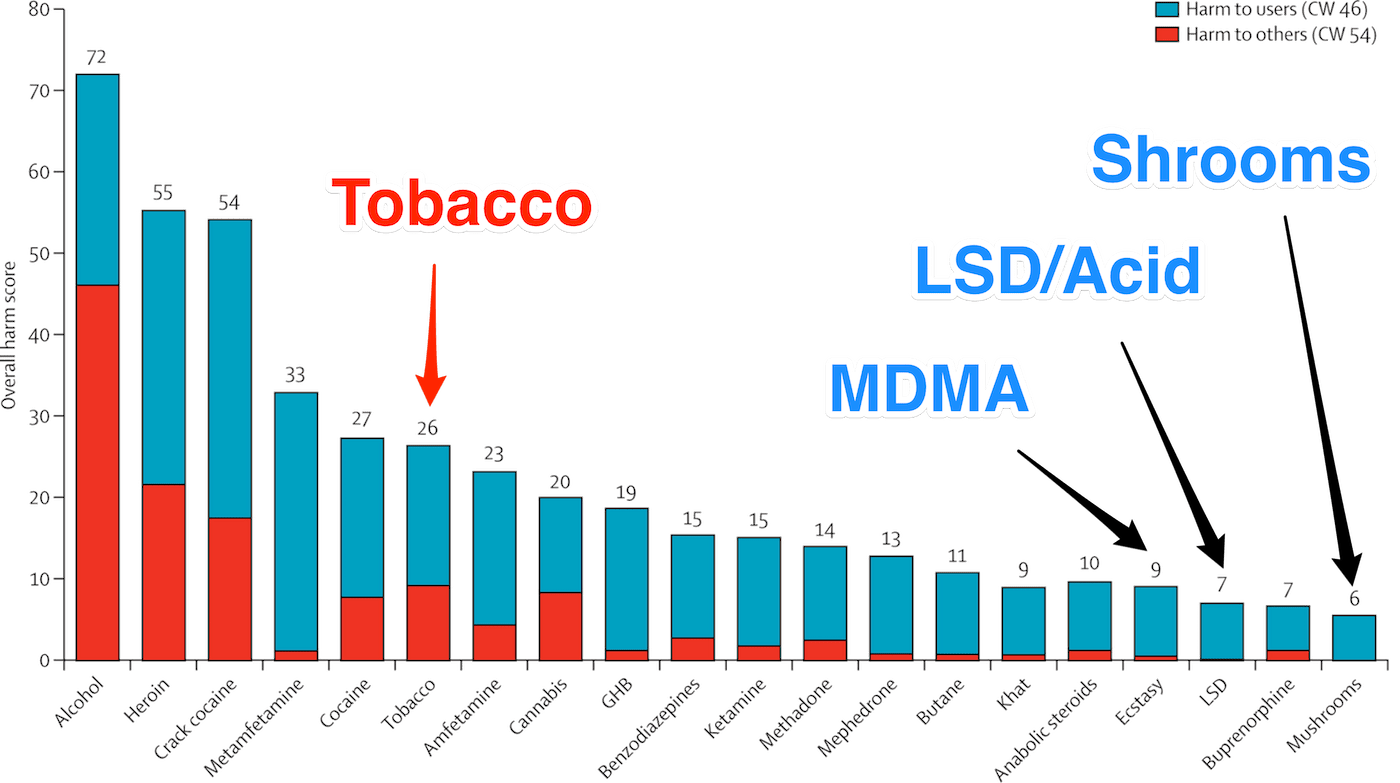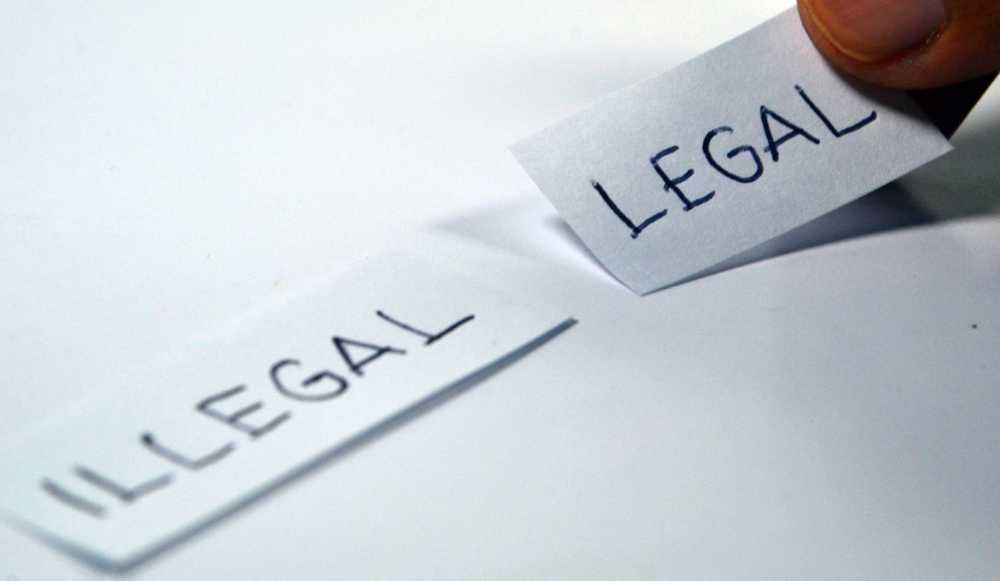Curious about the legality of magic mushroom spores? While mature mushrooms containing psilocybin are controlled substances in many places, the spores themselves are often in a different legal category. That’s because mushroom spores, in their dormant state, don’t contain any psilocybin—the psychoactive compound found in fully grown mushrooms. However, the legality of possessing, buying, and studying magic mushroom spores can vary widely from one country (and even one state) to another. In this article, we’ll break down the legal landscape for magic mushroom spores, explore their uses in microscopy and research, and help clarify what’s allowed where.
What Are Magic Mushroom Spores?
Our most commonly asked question is whether buying magic mushroom spores is legal? The answer in most cases is a resounding yes, BUT, it also depends. To understand why magic mushroom spores are generally legal you have to understand what a magic mushroom spore is.
First, it’s important to clarify the type of mushroom spores we are referring to. All mushrooms produce spores but we are referring to any mushroom spores that when cultivated contain psilocybin, e.g., psilocybe cubensis or panaeolus cyanescens. Any mushroom containing psilocybin is also referred to as a magic mushroom. We will use magic mushroom and psilocybin containing mushrooms as synonyms. Unlike mature mushrooms, however, the spores themselves do not contain psilocybin or any psychoactive compounds, making them unique in their legal status in many regions.
In their spore stage, they’re primarily valued by researchers and mycologists for microscopy and taxonomy studies, allowing enthusiasts to explore the fascinating world of fungi without the legal complications associated with cultivating or consuming psilocybin mushrooms.
Are Magic Mushroom Spores Legal?
While laws vary depending on location, the drug associated with magic mushrooms that is banned in all but a few countries, is psilocybin. During digestion, the human body breaks down psilocybin into psilocin, which contains psychedelic properties; hence the name “magic mushrooms”.

It is not the magic mushroom that’s illegal, rather the substance, psilocybin, that it contains. Magic mushroom spores don’t contain psilocybin. This makes magic mushroom spores completely legal in most cases.
It is not clear whether psilocybin becomes present during germination, when mycelium starts forming. Although most data suggests the mycelium does not contain psilocybin we would stay away from liquid cultures to be on the safe side. The other issue with liquid cultures is the potential intent to cultivate. Please remember that when magic mushroom spores are legal it is under the premise that they are being used for microscopy, NOT cultivation.
Here is a breakdown of the legality of magic mushroom spores in the western world:
United States
In the United States, the legality of magic mushroom spores is complex and varies between federal and state levels:
Federal Level
At the federal level, psilocybin is classified as a Schedule I controlled substance, meaning it’s illegal to possess, sell, or distribute. However, mushroom spores themselves are generally not regulated under federal law since they don’t contain psilocybin or any psychoactive compounds. This allows spores to be bought, sold, and possessed legally for purposes such as microscopy and research. That said, it’s important to note that federal law prohibits the cultivation of magic mushroom spores into mature mushrooms containing psilocybin.
State-Level Differences
Each state approaches mushroom spores differently, with some specifically regulating their sale, possession, or use. Here’s a breakdown of states with more restrictive laws on magic mushroom spores:
- California: It’s illegal to possess and sell spores in California, even if they don’t contain psilocybin, due to state-specific restrictions.
- Georgia: Georgia law also prohibits the sale, possession, and distribution of psilocybin mushroom spores, aligning them with other controlled substances.
- Idaho: Idaho has a strict stance, making it illegal to possess or sell mushroom spores that are known to grow psilocybin mushrooms.
In other states, like Florida, magic mushroom spores are generally legal for possession, although it’s illegal to cultivate them. This means that many spore vendors operate under the condition that their products are strictly for microscopy and research purposes, with disclaimers that they are not to be used for cultivation.
Canada
In Canada, the legality of magic mushroom spores is somewhat less restrictive than for mature psilocybin mushrooms, but there are still important regulations:
Federal Law in Canada
In Canada, psilocybin and psilocin (the active compounds in psilocybin mushrooms) are classified as Schedule III controlled substances under the Controlled Drugs and Substances Act (CDSA). This makes it illegal to possess, sell, or produce psilocybin and psilocybin-containing mushrooms without a special exemption or license. However, because mushroom spores do not contain psilocybin, they are not technically controlled by the CDSA at the federal level. As a result, spores can be sold, bought, and possessed legally in Canada, primarily for microscopy and research purposes.
Restrictions on Cultivation
While it’s legal to possess and buy spores, cultivating them into mature mushrooms that contain psilocybin is illegal without a special license. Cultivation would involve the production of a Schedule III substance, leading to legal consequences if pursued without authorization.
Recent Developments in Psilocybin Access
Canada has seen a recent increase in interest around psilocybin, particularly for medical and therapeutic uses. Since 2020, certain patients and healthcare providers have been granted legal exemptions to use psilocybin for therapeutic purposes, signaling potential future changes in how psilocybin is regulated.
United Kingdom
In the United Kingdom and Europe, the legality of magic mushroom spores is nuanced, with spores generally unregulated but restrictions on cultivation due to the presence of psilocybin in mature mushrooms.
In the UK, psilocybin and psilocin are classified as Class A controlled substances under the Misuse of Drugs Act 1971, making it illegal to possess, produce, or supply them. However, mushroom spores do not contain psilocybin in their dormant state, so they are not classified as controlled substances and are generally legal to possess, buy, and sell.
That said, it is illegal to cultivate or germinate these spores, as growing them into mushrooms would produce psilocybin, which is prohibited without a license. This means that while spore syringes, prints, and swabs are accessible in the UK for microscopy and research, they must not be used for cultivation.
European Union (EU)
The legality of magic mushroom spores in Europe varies by country, with each having its own drug laws and policies. Here’s a brief overview of some of the main approaches:
- Netherlands: Magic mushrooms are illegal, but psilocybin truffles are legal due to a legal loophole. Spores themselves are typically unregulated and legal to possess, but cultivation remains prohibited.
- Germany: While possession and cultivation of psilocybin mushrooms are illegal, spores are generally unregulated and legal to possess for research purposes.
- Spain: Magic mushrooms are illegal, but the possession of spores is allowed if they are intended strictly for personal use and research. Selling spores might attract legal attention depending on the context.
- Portugal: Although personal possession of controlled substances has been decriminalized, cultivation remains illegal, meaning spores are allowed but must not be germinated.
- France: Psilocybin mushrooms are illegal, and while spores themselves are not specifically regulated, French law prohibits any action that could lead to psilocybin production.
Australia
In Australia, psilocybin is a Schedule 9 prohibited substance under the Standard for the Uniform Scheduling of Medicines and Poisons (SUSMP), meaning it’s illegal to possess, produce, or distribute without a permit. However, the legal status of mushroom spores, which do not contain psilocybin in their spore form, is somewhat less clear and varies by state.
- Spores for Research Only: Although mushroom spores don’t contain psilocybin, they are generally considered illegal if there is an intention to cultivate them. In some states, they may be allowed for research or microscopy purposes, but purchasing or possessing spores is often viewed as a gray area and may lead to scrutiny from authorities.
- State Variations: Each Australian state has its own approach, but most have laws that effectively make spores illegal if there’s any indication they may be used to grow psilocybin mushrooms. States like Queensland, Victoria, and New South Wales strictly regulate substances linked to psilocybin, making possession or sale of spores risky even for research purposes.
New Zealand
In New Zealand, psilocybin and psilocin are classified as Class A controlled drugs under the Misuse of Drugs Act 1975, making the possession, cultivation, or sale of psilocybin mushrooms illegal. Mushroom spores, however, are not explicitly addressed under New Zealand law.
- Research Use: While spores don’t contain psilocybin, they may still be considered illegal if authorities believe they are intended for cultivation. This can make the legal status of spores somewhat ambiguous, especially if they’re being used solely for research purposes.
- Import Restrictions: Importing spores into New Zealand without proper permits could be problematic due to strict customs regulations, particularly around substances linked to controlled drugs.
As you can see laws vary significantly so it is very important to always check local regulations before trying to import magic mushroom spores.
Uses for Magic Mushroom Spores in Research and Microscopy
Magic mushroom spores have several uses, especially in scientific and educational fields. Here are some of the most common applications:
Microscopy and Mycological Research
- Purpose: Mushroom spores are popular among researchers and mycology enthusiasts for studying under a microscope. They offer insight into the microscopic features and cellular structures unique to various mushroom species.
- Application: Spores provide a foundation for understanding fungal reproduction, growth patterns, and genetic diversity. Studying them helps further knowledge in mycology without needing to grow the actual mushrooms, which may contain psychoactive compounds.
2. Taxonomy and Identification
- Purpose: Taxonomy, the science of classification, uses spores to categorize and differentiate various strains and species of mushrooms.
- Application: By analyzing spore shapes, colors, and microscopic characteristics, taxonomists can identify species and contribute to a broader knowledge of fungal biodiversity. This is important for scientific documentation and for understanding the ecological roles of different fungi.
3. Educational Demonstrations and Public Awareness
- Purpose: Educational institutions and mycology clubs use spores to teach fungal biology, ecology, and taxonomy without breaking laws regarding psilocybin.
- Application: Spores can be safely displayed in classes, labs, or public lectures to showcase the diversity and importance of fungi. This helps demystify magic mushrooms by focusing on the biology of the spores rather than the psychoactive compounds in mature mushrooms.
4. Genetic Research
- Purpose: Spores contain all the genetic material of the mushroom, making them valuable for genetic studies and research into hereditary traits within fungal populations.
- Application: By studying spores, scientists can learn about genetic variation and resilience, which has implications for understanding fungal evolution and adaptation.
5. Conservation Efforts
- Purpose: Spores can be collected and preserved as a means of conserving species and their genetic information, particularly for endangered or rare fungal species.
- Application: By preserving spores, scientists can safeguard genetic diversity and protect fungi from extinction, ensuring they remain part of our planet’s biodiversity.
What is the Legal Future of Magic Mushrooms?
Not long ago, many countries had a different stance on the legality of magic mushrooms. In the UK, up until 2005, you were able to buy magic mushrooms legally from places such as Camden market.

The introduction of the Misuse of Drugs Act 1971 made possession, cultivation and sale of magic mushrooms illegal in the UK. The drug Psilocybin is currently Class A, meaning that possession carries a maximum prison sentence of 7 years and an unlimited fine. If caught dealing the maximum sentence is life imprisonment.
Until 2005 the law only specified that mushrooms that had been prepared (dried) were illegal. This meant that as long as the mushrooms were fresh, no offence had been committed. Unfortunately the Drugs Act 2005 amended the existing legislation making magic mushrooms in any form completely illegal.
More recently the law in some places is begining to revert back to the good old days. Denver has become the first US city to decriminalise magic mushrooms (NOT the same as legalising), with other cities following suit. Given the research currently being undertaken on the benefits of psilocybin for people suffering from conditions such as depression and PTSD, we believe this trend will continue. If Big Pharma decides psilocybin is a drug they can use, it would be unsurprising if psilocybin starts to become legal in those countries they wish to distribute. This will likely come with some caveats. As is the case with distributing canabis in the US, licensing of some sort, will likely be enforced.
There are also many supporters touting the benefits of micro-dosing psilocybin, with websites such as: thethirdwave.co providing information and courses on how to do this. Silicone valley has seen a lot of CEO’s and tech entrepreneurs publicly announcing their support of this practice. Unfortunately reporting on such topics can often blur the lines of the legal status of magic mushrooms.
While we don’t promote magic mushroom use in any way, and respect the law, we believe the laws surrounding magic mushrooms are absurd. In our opinion, the government should not dictate the legal right of an adult to ingest anything that grows completely naturally. Additionally, reports showing the dangers of different substances show psilocybin to be much less harmful than e.g., alcohol, as shown in this chart from https://tripsafe.org/shrooms/

For a chart on the legal status of magic mushrooms (at the time of writing) in your country, see here: https://en.wikipedia.org/wiki/Legal_status_of_psilocybin_mushrooms.
We hope this article provides those of you that want to purchase magic mushroom spores with the information you need to stay on the right side of the law. If there’s anything we have missed, or that you are still unsure about, please comment below.
You can purchase magic mushroom spore syringes here and magic mushroom spore prints here.
In conclusion
The legality of magic mushroom spores may vary depending on the laws of your specific country or state. In some places, possession and sale of spores for microscopy purposes may be legal, while in other places it may be illegal. It’s important to research the laws in your area and make sure you are in compliance with them before purchasing or possessing any magic mushroom spores. Additionally, it’s important to note that using spores to cultivate mushrooms is illegal in most places.
